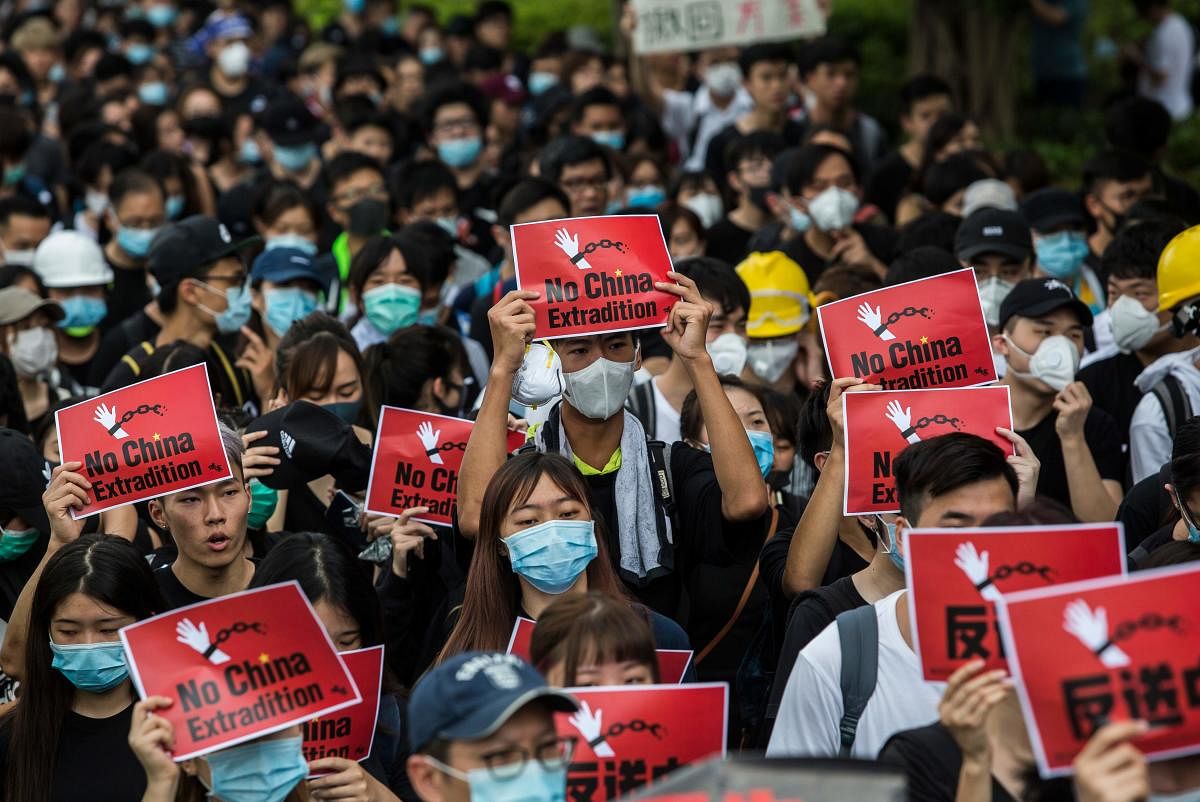
Hong Kong has been roiled by unrest over the past fortnight over a controversial bill that allows extradition of the city’s residents to mainland China. Protesters have been showing up in large numbers to demand cancellation of the bill which, if enacted, would subject extradited Hong Kong residents to China’s deeply flawed justice system. This is of concern especially to those whom Beijing will want extradited for their political activism. There have been instances of Hong Kong residents disappearing, only to surface in Chinese custody. The proposed legislation will provide legal cover to such actions. The call to scrap the bill enjoys mass support; on two consecutive weekends an estimated million people, roughly one-seventh of Hong Kong’s population, were out on the streets protesting peacefully. Even the violence that the Hong Kong police unleashed on them on Wednesday failed to deter them.
Hong Kong’s pro-Beijing Chief Executive Carrie Lam has suspended passage of the legislation and even apologised. But this has failed to cool the protests. Protesters believe that she will reintroduce the controversial bill eventually. Therefore, they are demanding that the legislation be killed. The ongoing protests are not just about the extradition bill. The bill is only the trigger to the demonstrations. Underlying the protests is simmering public anger over the whittling away of democratic rights in Hong Kong. Hong Kong is a former British colony, which China subsequently leased to Britain for a 99-year period. In the run-up to the expiry of that lease, Britain and China reached an agreement under which Hong Kong would return to China in 1997, under the principle of “one country, two systems”. This meant that while Hong Kong would become a part of China, it would enjoy “a high degree of autonomy” for 50 years. For instance, unlike China where political dissidence and protests are brutally crushed, the people of Hong Kong have the right to freedom of assembly and speech. But such political and civil rights are being systematically diluted, with China acting through Hong Kong’s pro-Beijing government. Increasingly, Hong Kong’s democracy is in name only.
In 2014, Hong Kong’s residents demonstrated for a record 79 days to demand more transparent elections. Clearly, they do not lack for commitment or tenacity. But they are up against the mighty Chinese state. The repression that the Chinese government unleashed on protesters at Tiananmen Square in 1989 and the systematic manner in which it has stamped out autonomy of Tibet and Xinjiang indicate that Beijing will go to any length to crush dissidence. This does not bode well for the brave protesters in Hong Kong.